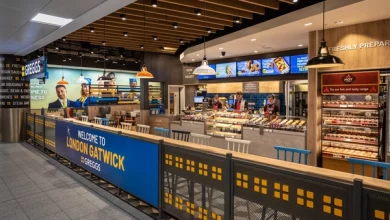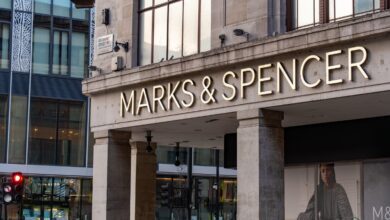Budget reaction: Retail split as business rates and import rules shift
The government stated that the cut to business rates will be funded through higher charges on properties valued above £500,000, predominantly affecting large warehouse operators

Register to get 1 free article
Reveal the article below by registering for our email newsletter.
Want unlimited access? View Plans
Already have an account? Sign in
The retail industry has labelled the Autumn Budget as a “mixed bag” for retail, offering relief for many shops, but bringing in new costs for others
Chancellor Rachel Reeves delivered Labour’s first Autumn Statement, outlining permanent business rates reductions for 750,000 retail, hospitality and leisure businesses and confirming new customs duties on all parcels arriving in the UK.
The government stated that the cut to business rates will be funded through higher charges on properties valued above £500,000, predominantly affecting large warehouse operators. It also confirmed £4.3bn in support for firms facing steep bill increases.
Story Stream: More on Budget
- ‘Dismal December’ as Christmas fails to boost retail sales, BDO finds
- Retailers to benefit as 40% first-year tax allowance comes into force
- Seasalt plans 10 new shops a year despite industry slowdown
- UK consumer confidence edges up but remains flat year-on-year
- UK retail sales dip in November amid weaker Black Friday boost
From 2026, customs duty will apply to parcels of any value in what ministers described as an effort to reduce the price gap between online sellers and high street retailers.
The government has also set out minimum wage changes, with the over-21 rate rising to £12.71 an hour next April, and pay for those aged 18 to 20 increasing to £10.85.
Helen Dickinson, chief executive of the British Retail Consortium, characterised the Budget as mixed and highlighted concerns about the impact on larger retail sites. She said: “This Budget offered much-needed relief for some retailers, but fell short of the bold action needed to secure the long-term future of our high streets and mitigate the inflationary pressures which are currently pushing up prices for households
“The announced permanent reduction in retail business rates is an important step… Yet the decision to include larger retail premises in the new surtax does little to support retail investment and job creation.”
She also pointed to cost pressures associated with wages, salary sacrifice changes and employment regulations, arguing that these could limit recruitment and investment across the sector.
She concluded: “All in all, we will see winners and losers across retail and the impact for consumers will unfold in the coming months, but this Budget does not go far enough to mitigate the inflationary pressures already bearing down on the industry.”
In contrast, Shirine Khoury-Haq, chief executive of the Co-op Group, welcomed the measures and emphasised their impact on local economies.
She said: “Today’s Budget provides the clarity and certainty that small shops and local communities have been waiting for…The Government’s decision on business rates is a welcome and important step that will help protect jobs, strengthen local economies and support high streets across the country.
“Co-op is stepping up alongside this commitment, facilitating over £1bn of spending into the UK economy over the next year. This includes our biggest ever number of price reductions to help with the cost of living, continued investment in British farmers and suppliers, and a focus on keeping high streets vibrant and safe.”
The Confederation of British Industry (CBI) observed that the Budget offered greater fiscal stability and underlined the importance of long-term planning.
The CBI pointed to several areas where it believes the government has responded to its calls, including hiring 350 additional planners to speed up development decisions, extending technology adoption support to more sectors, introducing new public procurement measures to encourage innovation, and removing VAT from direct donations of goods from 2026.
However, it warned that the lack of reforms to IR35, capital allowances and the energy profits levy may continue to deter business investment.
Additionally, The Federation of Independent Retailers (Fed) endorsed the government’s focus on tackling illicit trading but warned that higher wage costs would put further pressure on small shops.
Hetal Patel, national president, said: “We have campaigned long and hard for the government to get tough on those who trade in illicit goods…However, the introduction of licenses to sell tobacco products and vapes will place a further burden on honest shopkeepers.”
Patel also said it was disappointing that the increase in the minimum wage is above inflation. He added: “We called for any increases to be kept in line with inflation. Unfortunately, higher wage bills will lead to more staff having their hours cut or even losing their jobs, with retailers having to take on even more hours themselves.”
The organisation also expressed concern about the forthcoming business rates revaluation in 2026.
Similarly, the Association of Convenience Stores (ACS) criticised the new Retail, Hospitality and Leisure multiplier for lacking meaningful support.
James Lowman, chief executive, said: “Changes to the business rates system provide nowhere near enough support and are a major disappointment. Small shops will see their rates bills increase in April, and many will see further increases as a result of the revaluation.”
However, the ACS has welcomed the increased penalties for illicit vape sales but stressed that local Trading Standards teams would require additional resources to enforce the rules.







